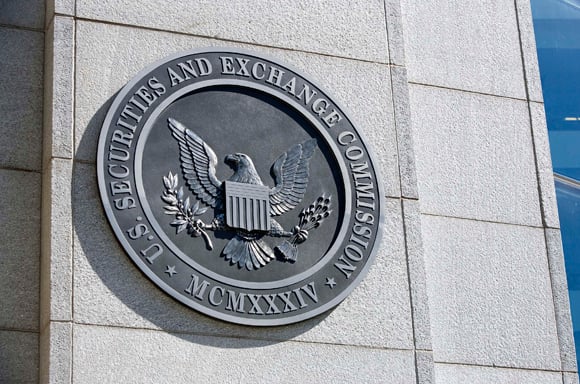SEC dismisses case against Urban, but offers no clarification on scope of responsibility; 'back to where we started'
The Securities and Exchange Commission has dismissed a case against a compliance officer that could have set the limits for how far a firm must go in addressing internal malfeasance.
In a decision announced Thursday, the commission split, 1-1, on whether Theodore Urban, former general counsel of Ferris Baker Watts Inc., should have taken action to fire a rogue broker at the firm rather than recommend that the broker's supervisors discipline him.
SEC Chairman Mary Schapiro and Commissioners Elisse Walter and Dan Gallagher recused themselves from the proceedings. An SEC spokesman declined to comment on why the three officials sat out.
The dismissal of the case leaves unresolved questions surrounding whether compliance executives also are supervisors and how much latitude they have in imposing discipline.
“From a policy perspective, we're back to where we started,” said John Walsh, a partner at Sutherland Asbill & Brennan LLP, and former associate director and chief counsel for the SEC's Office of Compliance Inspections and Examinations.
After numerous instances of misconduct by broker Stephen Glantz came to light, Mr. Urban wrote a memo in December 2004 to Louis Akers, vice chairman of the board and head of retail sales, and Patrick Vaughn, assistant head of retail sales, recommending that he be fired.
Mr. Akers did not dismiss Mr. Glantz, a top revenue producer, but rather put him under special supervision. In 2007, Mr. Glantz, who admitted to a drug problem, pleaded guilty to securities fraud. He served one year of a 33-month sentence, paid $110,000 in restitution and was released in March 2010.
Mr. Urban maintained that he was not Mr. Glantz's supervisor and could not terminate him without Mr. Akers' concurrence. In its case against Mr. Urban, the SEC staff argued that Mr. Urban was required to take the situation to the company board — and if they did not act, Mr. Urban should resign.
Brenda Murray, the SEC's chief administrative law judge, ruled in September 2010 that Mr. Glantz violated securities laws but dismissed proceedings against Mr. Urban, finding that he had done all that could reasonably be expected to prevent Mr. Glantz' behavior.
The tie vote among the SEC commissioners on the appeal of Ms. Murray's decision resulted in the case being dropped.
That means that compliance professionals can breathe easier because the commission did not rule that they effectively supervise everyone in the firm when it comes to meting out discipline. On the other hand, the SEC staff does not have to worry about saying that compliance officers don't have to ensure punishment if doing so appears to be futile. It was generally understood at Mr. Urban's firm that any decision by Mr. Akers would go unchallenged, even by the chief executive and board.
Dismissal of the case means that the issue remains unresolved — a situation that relieves pressure on both sides.
“None of the nightmare scenarios have materialized,” Mr. Walsh said.
The Securities Industry and Financial Markets had mixed feelings about the outcome. The organization filed an amicus brief arguing that a general counsel or other nonline supervisors in a compliance or legal department do not have supervisory responsibilities.
“We are happy that this long and difficult ordeal has concluded in Mr. Urban's favor,” Kevin Carroll, SIFMA managing director and associate general counsel, said in a statement. “But we are disappointed that the commission didn't take this important opportunity to clarify this apparently murky area of the securities laws consistent with the points raised in SIFMA's amicus brief.”
More compliance cases are likely to emerge through the work of the commission's Asset Management Unit.
“A number of people in the compliance profession are nervous about the SEC's initiative targeting compliance,” Mr. Walsh said.







